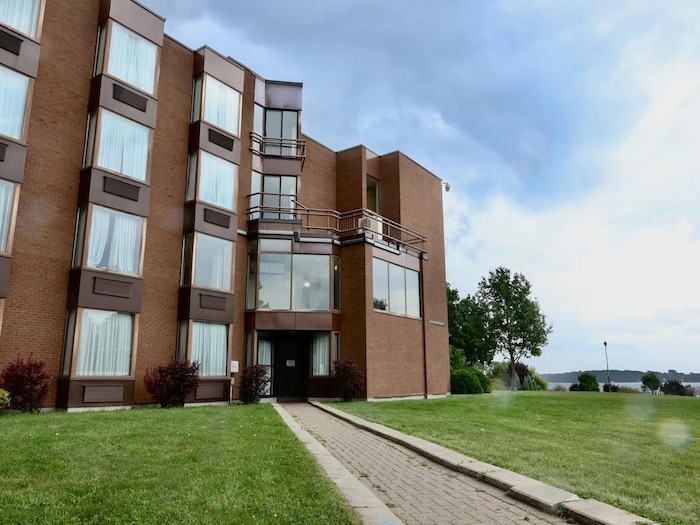Canada News
Ottawa gives some asylum-seekers in Cornwall an extension on deadline to move out
By Emma Weller, CBC News, RCI
Almost 70 asylum-seekers have until end of September to find a new place to live

A City of Cornwall representative said the city is worried about the living conditions for some of the 400 asylum-seekers who claim they have found housing. Photo: CBC / Guy Quenneville
After a month of fear and uncertainty, some asylum-seekers staying in a conference centre in Cornwall, Ont. now have another 60 days to find alternate housing.
Robert Coulombe, executive director of the Roy McMurtry Legal Clinic in Cornwall, said a representative of Immigration, Refugees and Citizenship Canada (IRCC) told a community meeting on Thursday that the centre will remain open for 66 identified clients but food will not be provided to them.
On July 3, IRCC told the DEV Centre in Cornwall that it would not be renewing the conference centre’s contract, meaning everyone would have to move out by July 31.
The department said 490 asylum seekers were living at the DEV Centre as of last week, but the numbers can fluctuate from day to day.
Coulombe said IRCC told the community meeting that 77 clients have either left the centre already or are set to go on to other IRCC-funded accommodations in Niagara Falls or Windsor.
Yesterday [July 30], we saw the first buses leave, either for Niagara or Windsor, leading asylum seekers to an uncertain future. It was heartbreaking to witness,
said DEV Centre president Jean-Pierre Poulin in a letter.

The DEV centre will now only house 66 asylum seekers until the end of September.
Photo: CBC / Jocelyn Shepel
Coulombe added that while IRCC said about 400 other asylum-seekers have found housing options in Cornwall, community stakeholders are worried about their living conditions.
We are concerned that IRCC’s definition of ‘housed’ claimants could mean people are left couch-surfing, living in cars, living in substandard units, or without proper leases. This would not meet IRCC’s commitments to us as a city, nor their responsibilities to claimants themselves,
a Cornwall city representative said in a media statement.
Coulombe said he’s heard of people living in what he called conditions of hidden homelessness.
It’s logical because it would be very surprising that 400 people find lodging within the community within [a] short period of time,
he said.
He said his group and other community organizations will work to ensure those people don’t fall through the cracks
now that they aren’t a part of a government-funded program.
The economic impact
In his letter, Poulin said almost half of the asylum seekers are actively working in Cornwall, either full- or part-time.
I am not sure the city, the business owners and the community as whole realize the impact of this decision on the overall ecosystem and the future growth and prosperity of Cornwall and its region,
he said.
He added that if the program had ended on Wednesday as scheduled, over 70 employees at the DEV Centre would have been laid off and 200 indirect jobs would have been affected.
Sonia Behilil, executive director of L’Association des communautés francophones de l’Ontario SDG, helped lead Thursday’s community meeting. She said Cornwall has struggled with a worker shortage for years.
Some [businesses] had resorted to busing people from Montreal or bringing people over from other countries to work,
she said. So these people that have arrived have helped meet that need, and so we’re having a direct impact in our economy.
Coulombe said this rapid change to the program will create new challenges for the community.
[The IRCC program has] been positive for the community. It will have a positive impact for the local economy for a long time,
he said. But the way that the program was wrapped up, it’s creating a lot of pressures on a lot of organizations and services in the community, which was not necessary.
This article is republished from RCI.





















